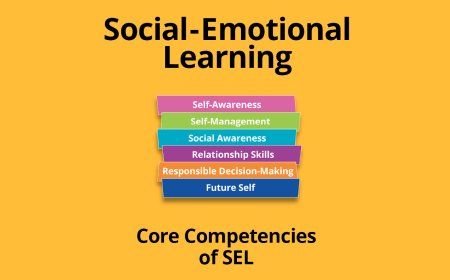In the pursuit of academic excellence, it is crucial not to overlook the mental well-being of students. Recognizing the importance of mental health education, schools are increasingly prioritizing the holistic development of students. This article aims to explore the significance of mental health education in schools, emphasizing its role in supporting student well-being, fostering resilience, and creating a nurturing learning environment.

1. Addressing the Mental Health Crisis
In today's fast-paced and high-pressure world, students face a range of mental health challenges, such as stress, anxiety, depression, and social pressures. Incorporating mental health education into school curricula allows educators to address these issues proactively. By raising awareness, providing resources, and promoting open dialogue, schools can play a pivotal role in supporting students' mental well-being.
2. Promoting Mental Health Literacy
Mental health education equips students with essential knowledge about mental health, mental illnesses, and the importance of seeking help. It aims to promote mental health literacy, empowering students to recognize the signs of mental distress in themselves and others. By fostering a culture of understanding and empathy, schools can reduce stigma, encourage help-seeking behavior, and create a supportive community for all students.
3. Developing Coping Strategies and Resilience
Mental health education emphasizes the development of coping strategies and resilience-building skills. Through evidence-based programs, students learn effective stress management techniques, emotional regulation strategies, problem-solving skills, and healthy coping mechanisms. These skills enable students to navigate challenges, build resilience, and maintain positive mental health throughout their lives.
4. Nurturing Positive Relationships and Social Skills
Mental health education plays a vital role in nurturing positive relationships and enhancing social skills. By teaching empathy, communication, conflict resolution, and emotional intelligence, students learn to build healthy relationships and navigate social interactions successfully. These skills foster a positive school climate, encourage peer support, and reduce instances of bullying, isolation, and exclusion.
5. Creating a Supportive School Environment
Integrating mental health education into schools creates a supportive environment where students feel safe to discuss their mental health concerns, seek help, and access appropriate resources. It sends a clear message that the well-being of students is a priority. By fostering a culture of well-being, schools can reduce the stigma associated with mental health, promote early intervention, and provide necessary support to students in need.
Also read:- Building Excellence: Innovative ideas for School Improvement
6. Collaboration with Mental Health Professionals
Effective mental health education involves collaboration between schools and mental health professionals. By partnering with counselors, psychologists, and community organizations, schools can offer comprehensive support services, workshops, and awareness campaigns. This collaboration ensures that students receive the necessary resources and interventions to address their mental health needs effectively.
Conclusion
Mental health education is not a mere supplement to academic learning; it is a vital component of a student's overall well-being. By prioritizing mental health education, schools can support students in navigating life's challenges, building resilience, and maintaining positive mental health. Let us recognize the importance of student well-being, foster a culture of understanding, and provide the necessary tools for students to thrive academically, emotionally, and psychologically. Together, we can create a school environment that values mental health and empowers students to lead fulfilling lives.
Follows Us for More Updates
Like Us on Facebook Page :
Click Here
Like Us on Instagram :
Click Here 






























